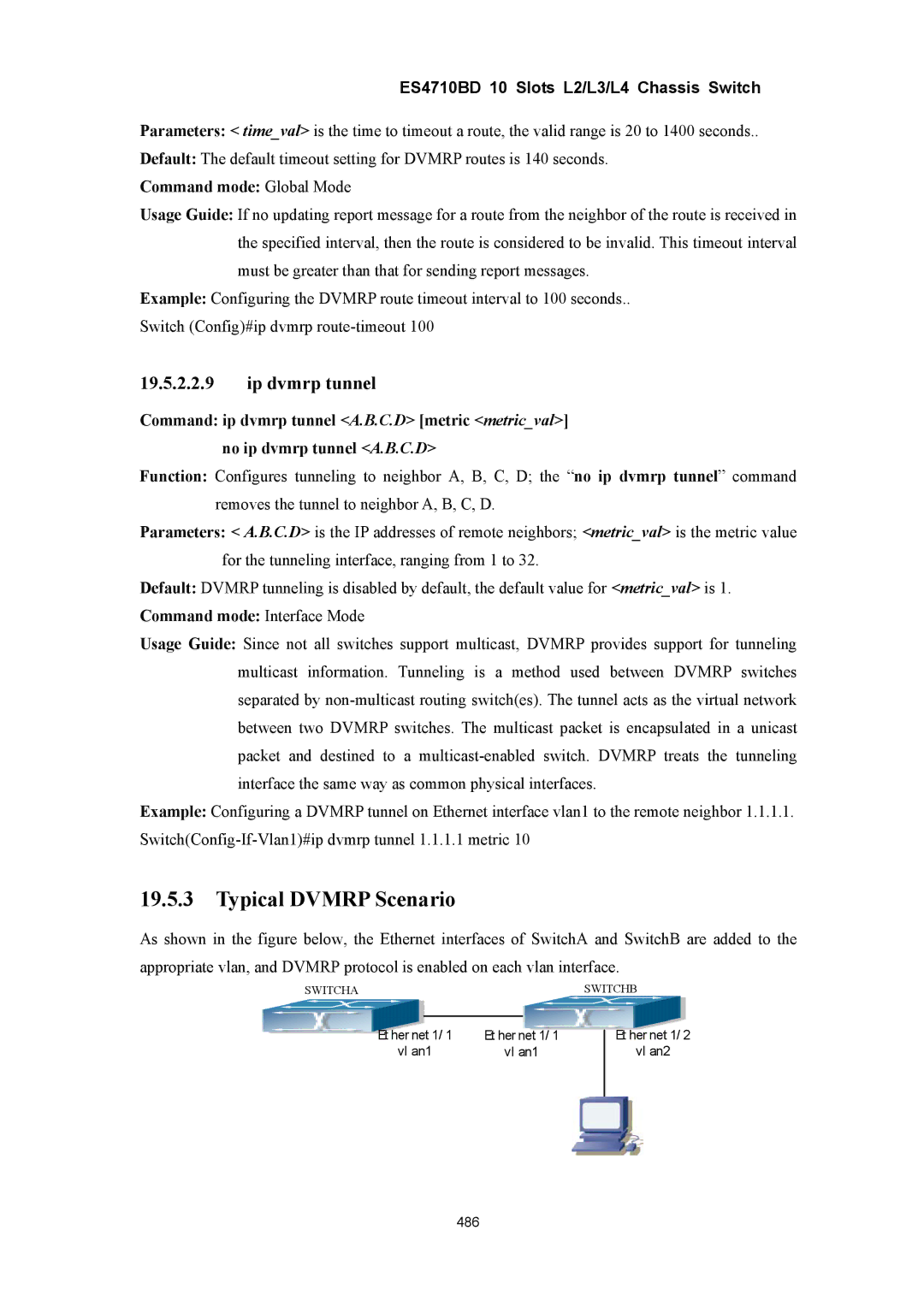
ES4710BD 10 Slots L2/L3/L4 Chassis Switch
Parameters: < time_val> is the time to timeout a route, the valid range is 20 to 1400 seconds..
Default: The default timeout setting for DVMRP routes is 140 seconds.
Command mode: Global Mode
Usage Guide: If no updating report message for a route from the neighbor of the route is received in the specified interval, then the route is considered to be invalid. This timeout interval must be greater than that for sending report messages.
Example: Configuring the DVMRP route timeout interval to 100 seconds.. Switch (Config)#ip dvmrp
19.5.2.2.9ip dvmrp tunnel
Command: ip dvmrp tunnel <A.B.C.D> [metric <metric_val>] no ip dvmrp tunnel <A.B.C.D>
Function: Configures tunneling to neighbor A, B, C, D; the “no ip dvmrp tunnel” command removes the tunnel to neighbor A, B, C, D.
Parameters: < A.B.C.D> is the IP addresses of remote neighbors; <metric_val> is the metric value for the tunneling interface, ranging from 1 to 32.
Default: DVMRP tunneling is disabled by default, the default value for <metric_val> is 1.
Command mode: Interface Mode
Usage Guide: Since not all switches support multicast, DVMRP provides support for tunneling multicast information. Tunneling is a method used between DVMRP switches separated by
Example: Configuring a DVMRP tunnel on Ethernet interface vlan1 to the remote neighbor 1.1.1.1.
19.5.3Typical DVMRP Scenario
As shown in the figure below, the Ethernet interfaces of SwitchA and SwitchB are added to the appropriate vlan, and DVMRP protocol is enabled on each vlan interface.
SWITCHA | SWITCHB |
Et her net 1/ 1 | Et her net 1/ 1 |
vl an1 | vl an1 |
Et her net 1/ 2
vl an2
486
